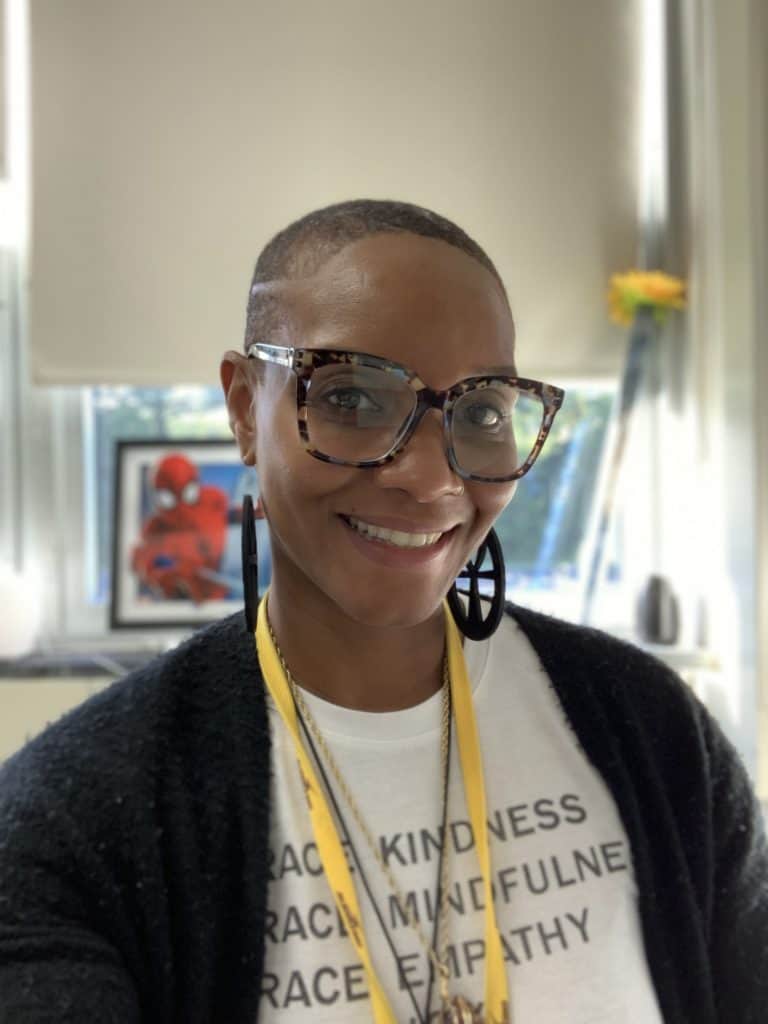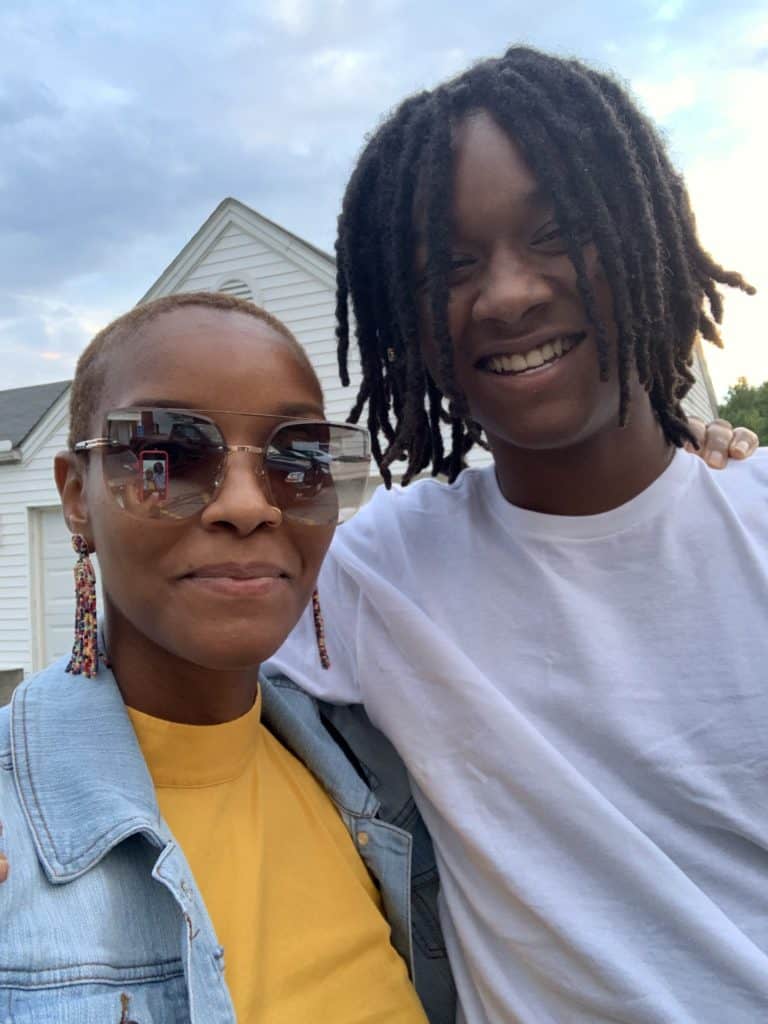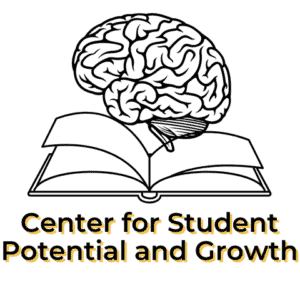Hi, and Welcome!

I’m Chaquita Niamke, Psy.S., LSPSY, ADHD-CCSP, the mastermind behind the blog and the Clinical Director at the Center for Student Potential and Growth®. I’ve been a school psychologist for the past twelve years and have worked with HUNDREDS of families like yours.
At the Center for Student Potential and Growth®, we specialize in counseling, coaching, and conducting culturally appropriate Learning Disorder and ADHD assessments for any age student. Our comprehensive psychoeducational evaluations can assist in helping parents obtain additional services for their kids with thorough and timely evaluations.
Our evaluations are completed in 30 days or less. We have daytime appointments, and you can typically make an appointment within two weeks.
The advantage of obtaining an evaluation with us is that we know the school system inside, out. We understand what data school teams use to determine if a student needs more help. Some students may not receive services within the school right away due to processes that can delay access anywhere from 60-90 days IF they are eligible (which can be frustrating when dealing with school politics and regulations!).
Our specialty in learning and attention disorders assessments allows us to conduct thorough evaluations and make recommendations based on the latest research so that students can progress. A comprehensive assessment is one thing, but ensuring appropriate treatments and support is another.
How I’m Positioned to Help
I will share the “obligatory” lists of achievements and credentials that can be helpful when you are looking for someone who understands your needs. I have assisted educators, students, and families over the past twelve years by staying on top of the research and providing various educational services:
- Board Licensed School Psychologist (SP .00631)
- ADHD-Certified Clinical Services Provider (ADHD-CCSP)
- Twelve years of experience as a school psychologist in public and private education, clinical supervision, provided consultation in public schools, private schools, community schools, clinical settings, and Montessori schools
- Past president of the Cleveland Association of School Psychologists (CASP)
- Evaluated hundreds of students to help find their unique learning profile
- Assisted hundreds of parents to get their children the right learning supports they need to be successful in school
- Led a school-wide PBIS initiative to build social-emotional programming for high schools that focused on ways to improve behaviors throughout the school
- Participated in a community collaborative to obtain access to resources from community partners for the families within the district
- Facilitated training for staff on how to structure social-emotional programming within their classrooms
- Provided crisis counseling for children and teens with severe emotional and behavioral disorders
- Facilitated weekly treatment reviews to assess student needs to ensure that students and families were receiving the appropriate support
- Supervised the development and implementation of compliant IEPs for children with severe emotional and behavioral disorders
- Provided consultation to teachers and principals regarding best practices for improved student outcomes
- Supervised programming and provided ongoing professional development for mental health professionals and special education teachers
I consider myself a multidimensional human. Here are a few personal things you should know about me:
- Roles I currently play: mom, wife, business owner, bibliophile, fitness freak, and currently working to curb my addiction to buying books
- I have a love/hate relationship with special education (more about that below)
- I was a single mom for eight years, working tirelessly as a school psych and helping my child with his learning challenges (more about that below)
- I love learning and reading, and I haven’t met a child yet that doesn’t love learning when it’s in a way that works for THEM.
- I believe my purpose is to disrupt the status quo in our education system and help parents and students learn to stand in their power, find what truly drives them to learn, and become disruptors as well (more about that below)
- I believe everyone has their special sauce and giftedness, and it’s critical to help our students find theirs.
- I love helping students become more self-aware. I believe it is a lifelong skill that perpetuates continued personal growth. We must do our best to honor and facilitate opportunities to help students improve their emotional IQ and self-awareness within our educational system.
Of course, there’s much more to me than I’ve shared above, but if any of these resonated with you, you’re in the right place. In my 40 years, I realize that your people will find you and vice versa, so if you are one of my people, welcome.
My Love/Hate Relationship with Special Education
Over the past ten years, I have looked at tons of data, and the results show that special education can sometimes limit student potential. I genuinely believe that we need to understand the nuance of an effective and ineffective special education program. I will clarify this in a second.
Let’s talk about the benefits of an EFFECTIVE special education program.
- An effective special education program will provide additional resources (personnel and funding for services) to students who are not progressing with their behavior or learning.
- Students who may otherwise fail or be retained typically aren’t because there is a documented reason for not meeting grade-level benchmarks. This can be huge for a student’s self-esteem to be able to move to the next grade level with their friends and understand their unique learning style.
- When the proper interventions are provided, students show growth and develop skills!
Now, let’s talk about the downfalls of an INEFFECTIVE special education program.
- Not directly targeting student challenges. I’ve reviewed IEPs for years and saw goals and objectives that did not match a student’s needs. Imagine a doctor giving you cholesterol medication for your diabetes! The wrong intervention (like the wrong medication) can cause more harm and cause students to fall further behind.
- Overwhelming caseloads and not enough personnel. The pandemic and resulting interruptions to learning caused learning loss across the nation. To add insult to injury, educators began leaving the field because of being overwhelmed and up their eyeballs in work! At the top of the 2022/23 school year, EdWeek Research Center conducted a national research study where 65% of the schools reported shortages for special education and mental health services! Shortage of special education staff=heavy caseloads for special education teachers and school psychologists (like me!). This leads to limited quality services for students who need MORE help than not or delays in getting tested for services.
- Staff mindset about special education students. I hate to say this is a thing…but this is a thing. Some students can be limited by the expectations placed on them by the staff they work with. I have witnessed staff lower the bar for students based on a label.
- Old mindsets about how and where special needs students should be taught persist. Until we can all own the responsibility for teaching all our students, our students will continue to be in the crosshairs of politics. I am a huge fan of the Universal Design of Learning, an inclusive framework designed to reach and teach all students. Of course, no teaching framework is without challenges, but we could better adjust how we think about teaching and embracing diverse learners.
- Over-identification and hyper-focus on labels. It bothers me that students needing the most help must jump through hoops to get it. Students who require specialized services must be labeled to get them! I understand the need for labels to create a shared language about a student’s needs, but this can be a mental limitation for some students. I’ve worked with students who over-identify with their diagnoses or special education label and limit themselves from growing! Worst still, some educators look at students with labels and make decisions about their potential. This is a harmful practice. I believe that parents must be the co-pilots in helping students grow. Parents who better understand how their child learns and how they need to support them can and do advocate for them! Advocacy can help change the status quo of the educational system.

My experience with my son with learning differences
My son, Cash, is an amazingly talented artist. He is charismatic, handsome, smart, and loveable. He also struggles with reading comprehension, attention, retaining information, and taking the trash out without being told (regularly).
His strengths have helped him to be resilient, have a pleasant attitude, and persevere.
His weaknesses led to many failing grades, long nights at the table doing homework, and putting off other fun activities (like organized sports) because schoolwork was a challenge.
Early on in his school career, he was able to pass his spelling tests every week! But math… was another story.
He read well, and his reading fluency increased each week with practice. I had to get creative when teaching him math multiplication facts and skip counting.
We spent A LOT of time at the table doing work. He was signed up for tutoring and tons of enrichment. But progress crept along.
I worked full-time and always made time for us to have fun each week. Watching movies, going to the recreation center and park, and playing the Michael Jackson Experience on the Wii. We had fun!
However, the evenings we both spent at the table going over concepts and models over and over were frustrating and tiring for both of us. I did everything I knew to do, some of it working, but it required so much for such little academic reward.
Despite all our practicing and studying, he would barely earn a C here, then an F there.
At that time, I was a single mom, and working tirelessly to help my son took a lot out of me. I remember crying after my son went to bed because of how hard we worked and how disappointed he would be to get that test that we studied so hard for and return home with a D or F.
Like any parent who wants to help their child does, I researched my ass off! I began noticing that the stories of the families I worked with mirrored my own. At that time, I started adding executive functioning assessments to my evaluations. I was learning about executive functioning skills and noticed that the research answered many questions.
I went down the rabbit hole with learning about executive functioning skills. I enrolled in a coaching program with two national leaders in executive functioning disorders, Dr. Peg Dawson and Dr. Richard Guare to learn how to coach students and help parents and teachers support executive functioning skills.
Everything I saw in my evaluations with students and my son began to make so much sense! To this day, I continue to dig into the research and seek out training to help me better understand executive functioning skills and ADHD.
My experience with my son and the students I worked with helped me understand where we were missing the mark and what we (I) needed to do better. I better understood how to help my son at school and home and how to consult school personnel on ways to better assist their students with executive functioning skills.
Why I Started the Center for Student Potential and Growth
I have always been a nonconformist, a free thinker, and an inquisitive. I saw that there were things that we weren’t doing in the schools that could truly help students experience success.
Overall, support for students with executive functioning deficits or diagnosed with ADHD is lacking in our schools. I believe school systems can do better to support executive functioning development and create welcoming environments for students diagnosed with ADHD. I enjoy consulting with school staff about ways to support students with these challenges, but we have a long way to go.
My work in this practice allows me to empower parents to be more active in their child’s education. When parents first come to our practice, they may not know much about ADHD, executive functioning skills, diverse learning experiences, or their children’s rights. After getting connected to our services, parents began to speak up more at school meetings and advocate for their child. They understand their child’s needs better. Parents become empowered and ask for what they need.
Helping parents become better, more knowledgeable advocates for their children is one of my favorite ways to help families like yours.
I love counseling and coaching students (both young and seasoned) and helping them better understand how they learn and process experiences as humans! Learning is a critical part of growth for all of us. Whenever I can help unlock a missing piece for a parent or student, such as a strategy that can help them be more organized or stay on task, I find it fulfilling!
I believe the way we educate our students can be better. I don’t have all the answers. However, I know that helping the student understand their learning and emotional strengths is a major step in leading a more fulfilling life.
Helping students become better learners begins with a clear understanding and knowledge of their unique learning profiles. From there, we can unlock student potential and growth by giving students exactly what they need.
I truly believe that all STUDENTS CAN GROW!
